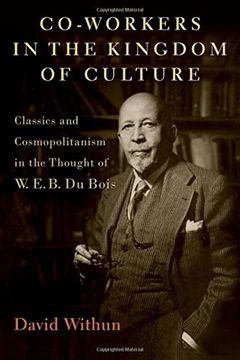Co-Workers in the Kingdom of Culture: Classics and Cosmopolitanism in the Thought of w. E. B. Du Bois
Synopsis "Co-Workers in the Kingdom of Culture: Classics and Cosmopolitanism in the Thought of w. E. B. Du Bois"
W. E. B. Du Bois was one of the great African American intellectuals of the early twentieth century. He was a prominent civil rights leader, sociologist, historian, educator, author of several works of fiction, and one of the founding figures of Pan-Africanism. Du Bois's works are filled withallusions to the classical mythology, philosophy, and history that permeated his education. In the first book-length discussion of the topic, David Withun examines the influence of classical authors on Du Bois's thoughts about education, the arts, government, and society. The influence of classicalphilosophy, particularly that of Plato and Cicero, is apparent in some of Du Bois's most distinctive ideas, such as the concept of the Talented Tenth, his opposition to Booker T. Washington's industrial education, and in his support of propaganda through art. Withun also explores Du Bois's critique of the classical tradition in his responses to modern racism and colonialism. While Du Bois adopted a number of ideas from the classical tradition, he also used them to critique what he saw as a tradition gone awry. Alongside Du Bois's critique of theclassical tradition, he also exhibited an increasing interest in the history--ancient and modern--of Africa and Asia. In his attempts to combat modern prejudice, Du Bois appealed to the long traditions of thought of peoples outside of Europe, in several instances pioneering the research ofnon-European history. Withun argues that Du Bois's absorption of the classical tradition and simultaneous appreciation of the history of Africa and Asia culminated in a modern cosmopolitanism, one that calls for a more inclusive appreciation of global culture.

